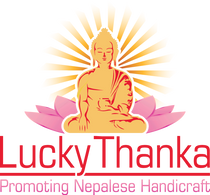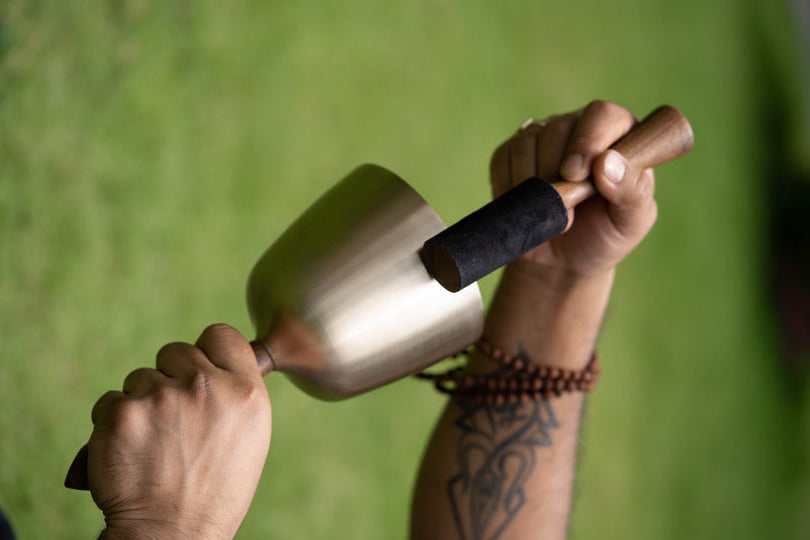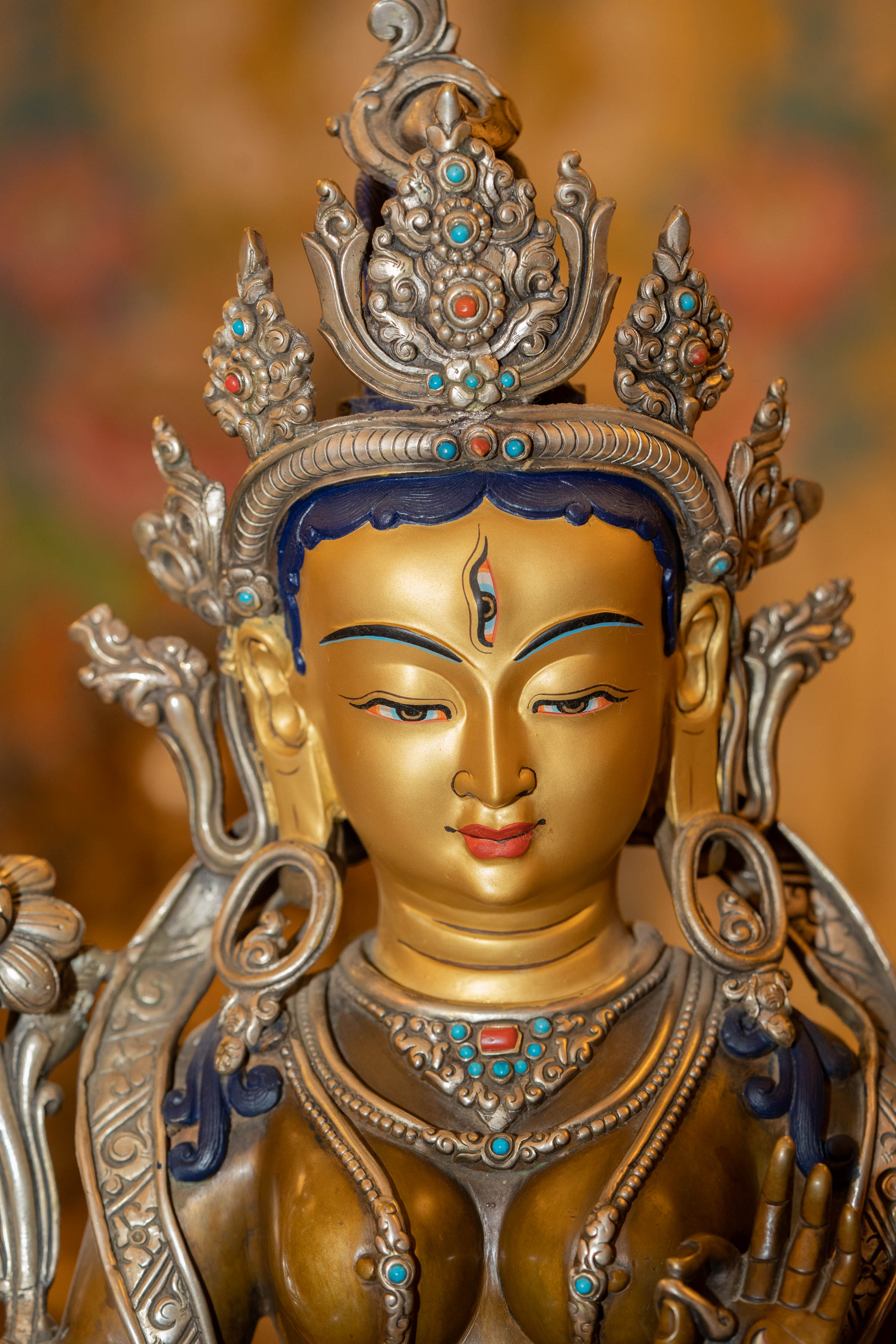Tibetan thangkas are religious paintings on scroll. They serve as meditation aid or as a tool to teach aspects of Buddhism to a wide audience. Thangkas follow certain basic image patterns. One of these iconographic patterns is the story of the life of the historic Buddha, Siddhartha Gautama who lived circa 563 BC to 483 BC.
This article is about the major events of the life of the historical Buddha as it can be found on a thangka of this design type, simply called 'Buddhas Life'.
The Conception of Gautama Siddhartha

Unreal like the conception of Jesus Christ, circa 560 years later, also the story of Buddha's conception is beyond any known biological facts. According to the documents written down more than two hundred years after Buddha's death, his mother, Maya Devi, an Indian queen, one day dreamed that she would become pregnant from a white elephant touching her right side with its trunk.
In Indian mythology elephants are seen as strong and fertile beings. And white is seen as a sign of purity and immaculacy.
The scene of Maya Devi's odd conception is found on top left of the thangka.
The Birth of Buddha

According to the legend, Queen Maya was pregnant for 10 months. When she was aware that her time was near, she followed an old custom and went on a journey to her parents' home in Nepal.
However before reaching her parents' home, she gave birth to her son in a garden in Lumbini, in today's Nepal. Queen Maya grabbed the branch of a tree and Buddha was born by coming out of her right side, the way he was conceived. Queen Maya Devi died seven days later. There have been discussions among scholars if the historical birth of Buddha may have been by cesarean section.
Life at Court

Gautama Siddhartha grew up behind high court walls, well protected from the ugliness of the real world of average people. He could have enjoyed the luxurious life of a rich prince. But he was not happy.
To distract him his father wanted the prince to marry. A tournament was organized as a test who was the strongest and best marriage candidate for Princess Gopi. In one contest, Buddha's rivals killed a white elephant. However Buddha, repelled by the senseless killing, tossed the elephant over the palace wall and brought it back to life.
This scene is depicted on lower left of the thangka.
Prince Siddharta Encounters Suffering
One day the prince left the palace and realized what real life was. He saw poverty, illness, the fate of aging and he saw a burial of a deceased person. Buddha recognized that there was suffering outside the luxury of the palace.
Prince Siddhartha Leaves the Palace Forever
Prince Siddhartha, in the meantime 29 years old, married and father of one son, decided to leave the palace to find an answer why there is suffering in the world and how to free the world from it. Secretly at night he left the palace on horseback and accompanied by a servant. Once he was far away from the palace, he sent the servant with the horse back. Buddha took seat in front of a stupa and cut his long hair off and dressed like a monk to begin the life of a simple student under different guru teachers.
This scene is shown on the upper middle right of the thangka.
Ascetism and Meditation
For six years the Buddha practiced ascetism under different guru masters. But after six years he and his friends who accompanied him, were close to death due to extreme ascetism. But Buddha recognized that this did not take him anywhere closer to understand the mechanisms of this world.
See the scene at right center of the thangka.
After 6 years of fruitless ascetism, the Buddha decided to eat again. This is what Buddhists call the "middle way", avoiding extremes to both sides. Buddha began to meditate under a large tree.
Buddha's Enlightenment
After several weeks of meditation Buddha finally found enlightenment by understanding the causes of suffering and how to end suffering.
Mara's Attack

This was the right moment for Demon Mara to enter the stage. Mara is a kind of incarnation of the evil, the devil so to say. Mara does not want Buddha to find enlightenment and does his best to prevent it. He sends evil monsters who shoot with arrows at the Buddha. But the arrows turn into flowers. Finally he sends his beautiful daughters to seduce the Buddha. But the beautiful young ladies turn into old, ugly women.
The scene of Mara's attack is shown on right lower middle part of the thangka. It is interesting that also this legendary scene from Buddha's life has parallels in the other major world religions - Jewish, Christianity and Islam.
Teachings
After having found enlightenment the Buddha spent the rest of his life traveling in Northern India and teaching his findings and principles.
Nirvana

At the age of roughly 80 years the historical Buddha passed away. As he had reached the state of enlightenment, he passed into nirvana. For Buddhists nirvana is the final bliss, the end of the cycle of rebirths and the end of all suffering.
The scene of Buddha's death is shown on bottom center. He is lying on his right side.
Buddha Life

n the center of all Buddha Life thangkas one finds always the historical Buddha Shakyamuni. He is shown with a beggar's bowl in his left hand and with his right hand calling the earth as witness, a scene from the story of Mara's attack.
The details of a Buddha Life thangka may vary and even the different scenes may not always be found on the same place. But the basic pattern is always the same.




